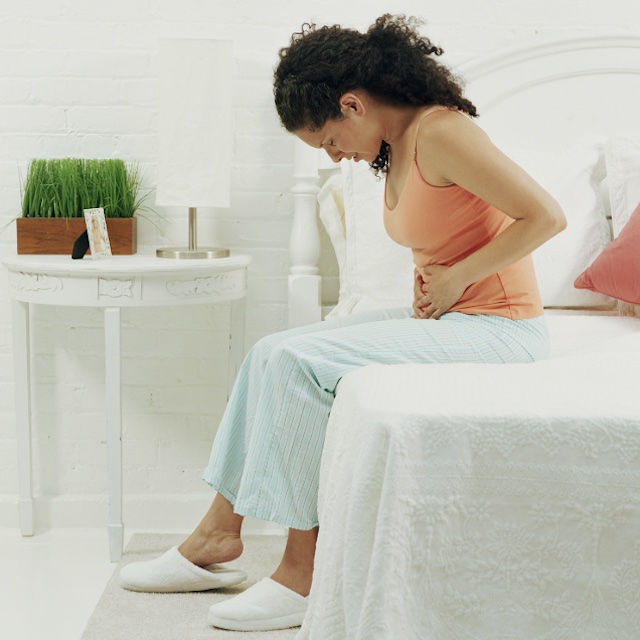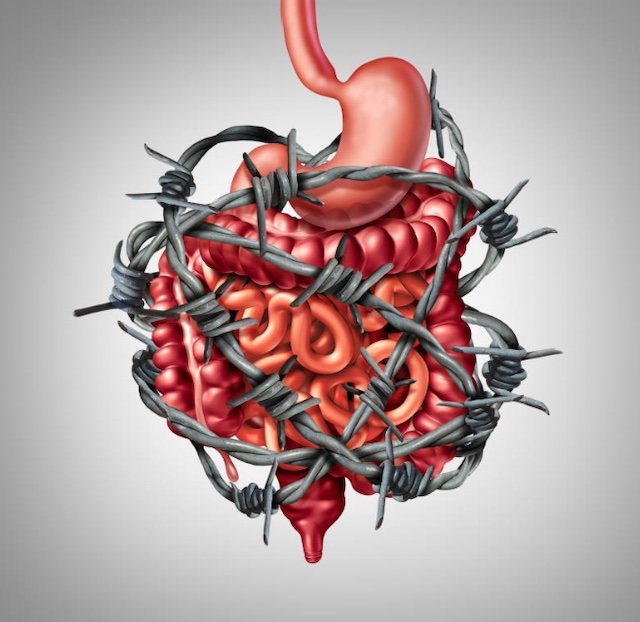Irritable Bowel Syndrome: Symptoms, Causes, Treatment
Irritable bowel syndrome (IBS) is a recurring gut disorder characterized by abdominal pain, disturbed bowel movements, and bloating. It affects about 18% of the world population, and in more than 50% of the cases, the first onset of symptoms occurs before the age of 35. IBS is not a disease but a functional disorder that affects the gastrointestinal (GI) tract – stomach, small intestine, and the colon. It is non-contagious, non-cancerous, and does not cause any permanent damage to the intestine. Nonetheless, it causes significant loss of productive hours and a reduced quality of life. Women are particularly vulnerable to IBS, especially around their periods.

What Happens In IBS
Normally, for the digestion process, our gut and the brain communicate via hormones and nerve signals. In IBS, this usual communication breaks. The reason why this happens is not well-understood as of now but is a subject of active research. Intestinal contractions are not well-coordinated and are either too short or too long. Because of this, the food moves through the intestine either too quickly or too slowly. This triggers uncomfortable digestive symptoms, disrupts bowel function, and causes pain.
Symptoms of IBS
The most distinguishing symptom of IBS is the persistent abdominal pain, which decreases after a bowel movement. Pain and bloating are accompanied either by diarrhea or constipation. Depending upon the symptoms, three types of IBS are identified.
IBS-D:
IBS with diarrhea is common in about 30% of the affected individuals. In this type, the food moves too quickly in the digestive tract. The symptoms include severe abdominal pain, bloating, an immediate urge, and loss of control on bowel movements. This can be embarrassing in social situations and causes significant stress.
IBS-C:
IBS with constipation is the most common type and accounts for 50% of the cases. In this condition, the food moves very slowly through the intestine, and all the water gets absorbed by the bowel. As a result, the stool becomes hardened, dry, and difficult to pass. Constipation is accompanied by pain and gas, the severity of which eases after a bowel movement.
IBS-M:
IBS mixed is reported in about 20% of the affected individuals. This is the most severe form of IBS, as it causes frequent, recurring symptoms. Abdominal pain comes with alternating constipation and diarrhea. In either case, patients feel better after a bowel movement.
Other symptoms:
People with IBS experience low stamina, fatigue, and sleep difficulties, such as frequent awakenings or feeling unrested in the morning. Usually, sleep difficulties are a precursor to severe symptoms.

Possible Causes
What exactly causes IBS is not known, yet some patterns have been observed, which led scientists to point out some possible culprits.
Stress and anxiety: In people with this disorder, a vicious cycle of stress and IBS symptoms have been observed. Stress is known to trigger symptoms, and the symptoms, in turn, reinforce stress.
Hormonal changes: Women affected by IBS find their symptoms worsening around the time of menstruation. As estrogen levels decline sharply during this time, it points to hormonal changes as a possible trigger.
Food intolerance: Food is the most common trigger observed in more than 70% of the patients. Although it differs for each person, gluten and lactose are the most problematic foods identified.
Treatment
So far, there is no cure for IBS. Some over-the-counter medicines, antispasmodic tablets, or prescription drugs are available for easing the pain and diarrhea. However, preventive self-care can restrict the symptoms to some extent.
Food restrictions: Eliminating some trigger foods like dairy and gluten from the diet are known to help in reducing the severity of IBS symptoms. Reducing caffeine and alcohol intake and avoiding spicy, fatty foods can also help.
More fiber: Increasing fiber intake, specifically soluble fiber (found in oats, beans, citrus fruits), keeps the digestive tract healthy and may help in avoiding constipation-dominated IBS.
Eating habits: Taking smaller , regular meals and drinking loads of water can also help ease the symptoms.
, regular meals and drinking loads of water can also help ease the symptoms.
updates?










0